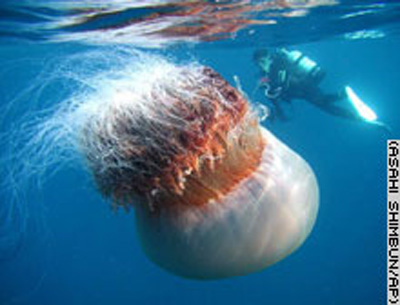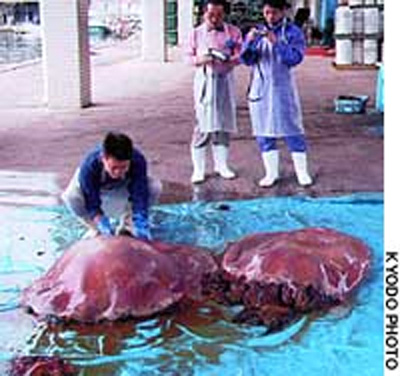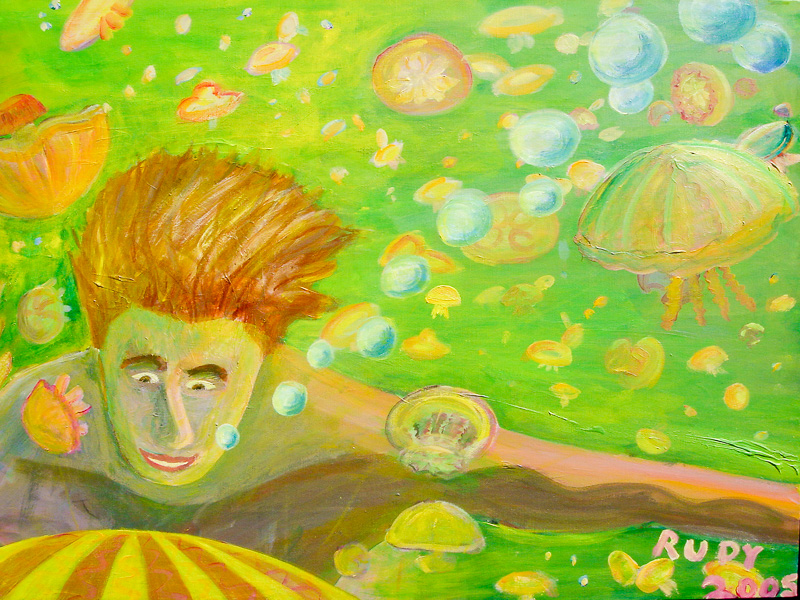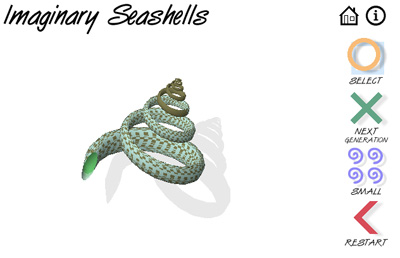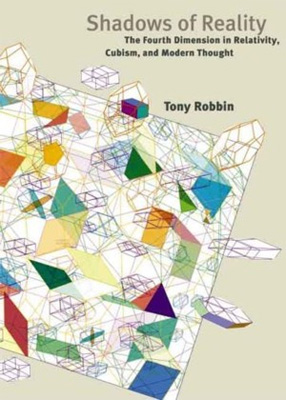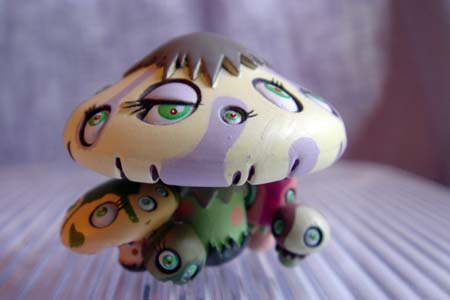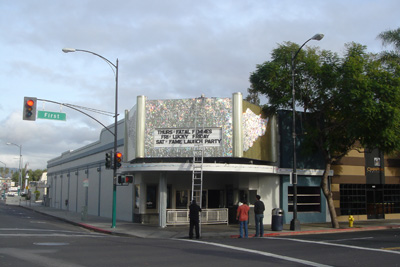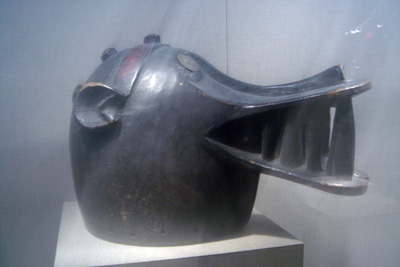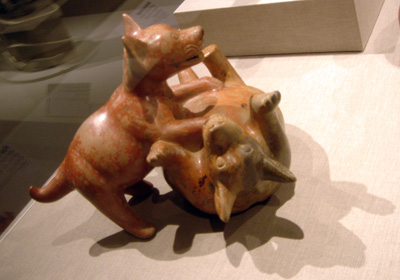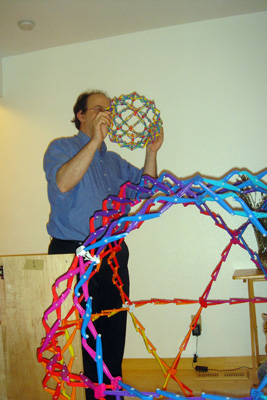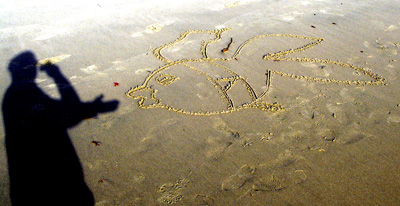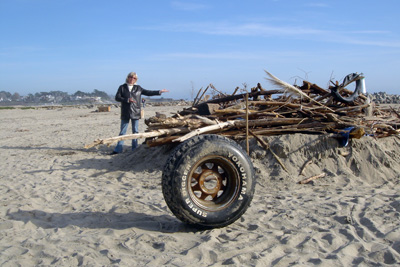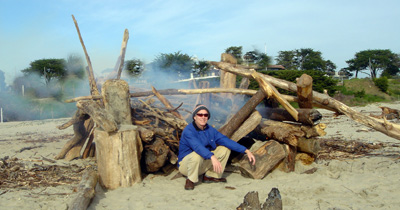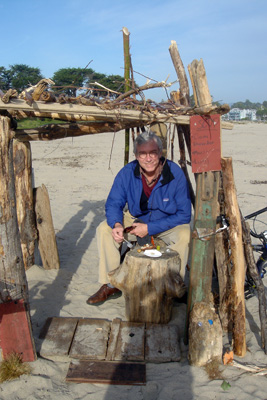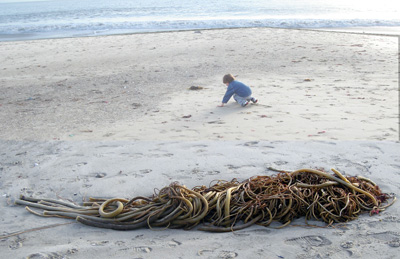
My wife and I spent a week in a cute log cabin at Sorenson’s Resort in Hope Valley in Alpine County, CA, altitude 7,000 feet, about twenty miles south of Lake Tahoe, near Carson Pass. There was a big snow storm the night we came up, very dramatic, very hard to drive, the windshield freezing over. The cabin has a wood stove that we have fun stoking. Once we put a bowl of water on the stove to boil, and it started dancing in a hexagonal oscillation.

We went out to play in the snow every day; I rented some back-country-style cross-country skis — they have metal edges that make it easier to negotiate turns, although I still tend to fall down when I get going too fast and feel that I’m losing control. Mostly I’m slogging uphill anyway. Seems like the Gravity God pays back less than s/he takes in.

I relish the peace of the woods, the intensely blue sky, the thin, icy air, the deep breathing and steady muscular work, the solitude, the low-level problem-solving of routing, the views of the white Sierra peaks, the boulders capped with snow, the reddish-barked pines with icicles dangling from their branch-tips.

I like it best when I’m in virgin snow, cutting my own trail — a nice physical metaphor for how I conduct my intellectual life. On my fourth day of skiing, I angled up some the very deeply besnowed western slopes of the Sierras above Red Lake near Carson Pass. Exquisite.

And at the same time I had the customary nosegay of small worries in the back of my mind and I was thinking, “Too bad I can’t be fully single-pointed and mindful about soaking up these quite exceptionally beautiful surroundings; too bad I waste energy running tape loops of the usual concerns.” The snow slope angled down at nearly forty-five degrees to my left, with lone piñon pines projecting here and there, the slanting snow horizon cutting nicely across the field of view, with a range of whipped-cream peaks beyond, and the sun blazing down from the absolutely clear high-altitude sky.

And then I was thinking, “My usual petty concerns are part of me, better to accept them than to bemoan them, as worrying about imperfection only adds an additional worry, let the worries play, but don’t care about them too much, they’re part of you, like the bark on the trees.” And then for awhile I’d forget myself in the physical effort, in the breath, in the beauty, also remembering to think, from time to time, “Thank you, God,” prayer always being a sure-fire way to amplify a natural high — I once heard an intelligent though rough-spoken biker talking about how to get the most of one's occasional drug-free pleasure rushes: “And if you start saying, ‘Thank you, God,’ that’s a good way to milk the rush a little more, stretch it out another few seconds.” I love that practical, canny, addict way of looking at transcendence. Milk it for all it’s worth.

Coming back down from what must have been 8,500 feet, I had a couple of long rides across pristine snow fields. With these latest-generation back-country skis, I’m staying up longer than ever before. Ripping through the deep powder, ah. I felt like a knife cutting through whipped cream, like a joyous gnat glutting himself upon an ice-cream sundae. I was way past worrying about anything now, the natural beauty and the exercise-endorphins doing their thing. I even did a face-plant into the snow when my tips dug into the deep snow crossing a buried brook, my face literally the first part of my body hitting the powder. I didn’t mind. I was glad I hadn’t hurt myself. I was glad I knew how to get up outta the whipped cream.
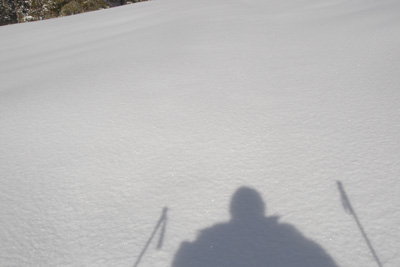
Another day I wanted to ascend the steep Indian Head trail right behind our cabin. I asked the ski rental woman to give me some skis that are very good at climbing but as it happened, she gave me skis that were very poor at climbing, and I was slipping back on nearly every step of the 2,000 foot ascent, even when doing herringbone. These skis were shorter, so that I’d have an easier time carving turns on the descent, but they had a very short and feeble “fish scale” pattern embossed on the bottoms. IMHO, Fischer brand back country skis suck; the Rossignols I tried were much nicer.

So I spent a lot of the climb grumbling to myself about the skis. Lord, it was exhausting. After the top things got better. I found a bare rock I could do yoga on, and did that for about half an hour, squeezing all the pain and tension out of my sobbing back and leg muscles. What pleasure. As I worked on my body and breath, my mind emptied out and I could really savor my surroundings, the single huge gray snow-capped boulder beside me with the pointed trunk of a dead piñon pine sticking up from it, Abbot and Costello, yin and yang.
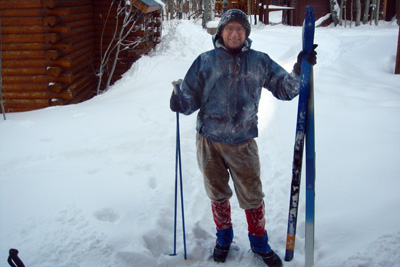
The descent was fantastic. The trail I’d come up was a snowshoe trail, quite icy and narrow, and, seeing a lovely whipped-cream slope to the side, I said, “F*ck the trail,” and went down the mountain direct. The shortness of the skis really helped here; I was making turns like crazy, and hardly falling down at all. The skis didn’t quite float like they did up at Red Lake, but it was good. Especially exciting to be threading my way through trees, bushes, rocks — really a rather dense hillside forest. Periodically I’d recross the switchbacks of the snowshoe trail I’d ascended and, over and over, I’d ditch the trail and take another short-cut; some of them excitingly steep and hairy.

I feel fortunate not to have racked myself up in these six days of winter fun. Today, our last here, I did some snowshoeing with my wife.
We were up on the Winnemuca trail at Carson Pass, starting at 8,500 feet and mostly horizontal. The landscape seemed cartoon-like; all the shapes were smooth mounds of snow. The trees of course weren’t simple; they were gorgeous pines. We came to a meadow looking out at a range of whpped-cream mountains, like the picture you see on the top of a box of Swiss chocolates.
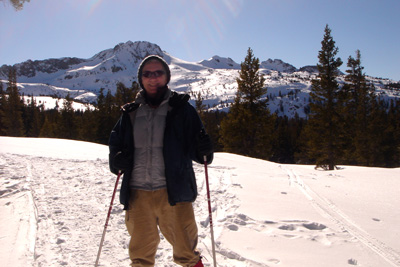
It was a real vacation.
